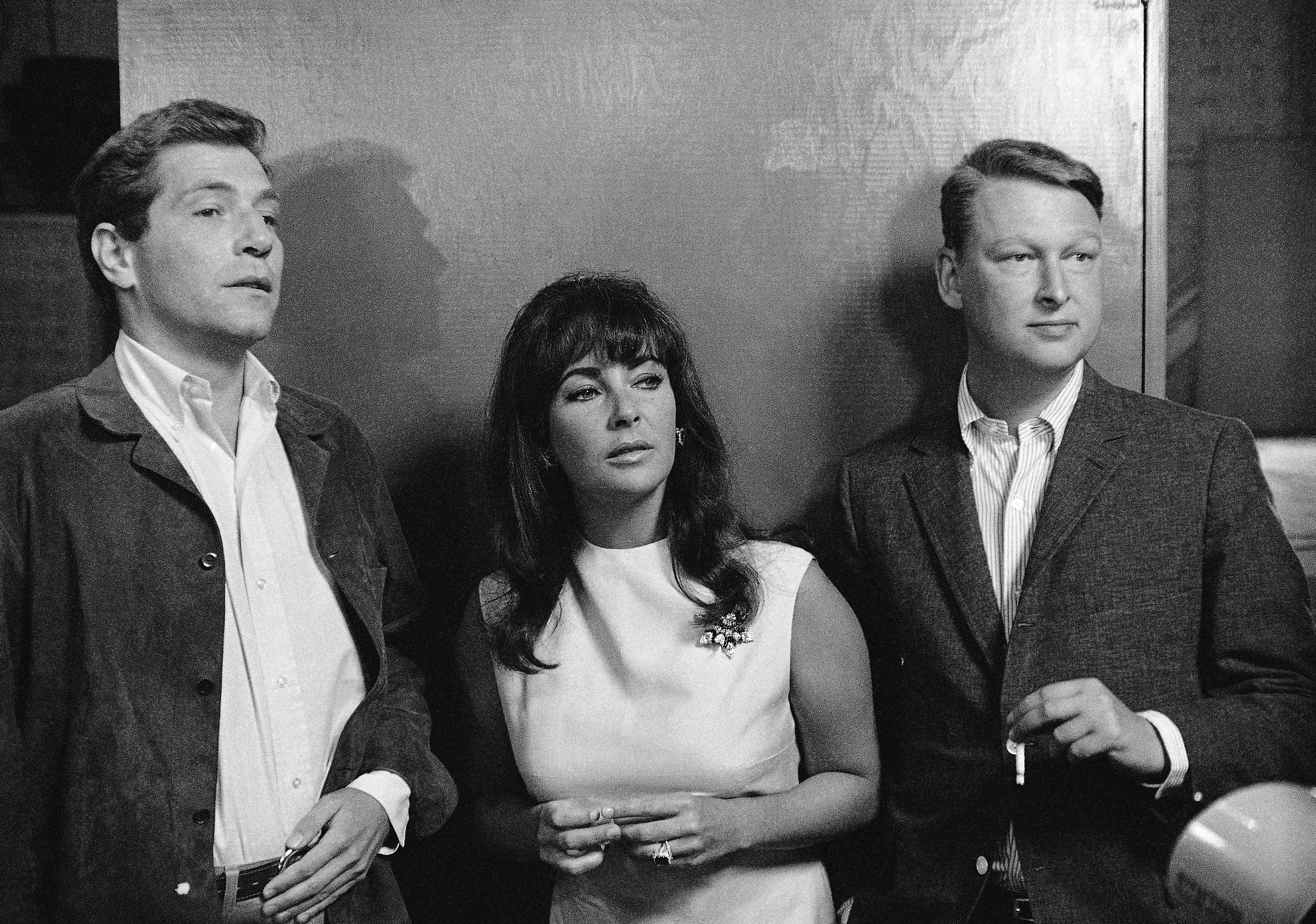NEW YORK (AP) — A legend of film, theater and comedy in nearly equal measure, Mike Nichols was an unquestioned fixture of smart, urbane American culture across a relentlessly versatile, six-decade career that on stage or screen, reliably coursed with crackling intelligence.
Nichols won nine Tonys, an Oscar, several Emmys and a Grammy. He made up the lanky half of his groundbreaking comic duo with Elaine May. As a director, he made countless performers — from Dustin Hoffman to Melanie Griffith — into stars. To acclaim, he adapted Edward Albee, Neil Simon, Tony Kushner and Arthur Miller.
Nichols, who died Wednesday night in New York at 83, was a supreme orchestrator of material, talent and taste. In films like “The Graduate,” ”Who’s Afraid of Virginia Woolf?” and “Carnal Knowledge,” he left not only a firm stamp of authorship, but with a dry wit and a classical eye, he choreographed caustic social commentaries of couples drunk with bitterness, bored with regret and apprehensive in flight.
“I keep coming back to it, over and over: adultery and cheating,” Nichols, who was divorced three times before marrying ABC News’ Diane Sawyer in 1988, said last year. “It’s the most interesting problem in the theater. How else do you get Oedipus? That’s the first cheating in the theater.”
Meryl Streep, who stared in Nichols’ “Silkwood” and “Heartburn,” recalled him as “a director who cried when he laughed, a friend without whom, well, we can’t imagine our world.”
Steven Spielberg called Nichols’ passing a “seismic loss.”
“For me, The Graduate was life altering — both as an experience at the movies as well as a master class about how to stage a scene,” said Spielberg. “Mike had a brilliant cinematic eye and uncanny hearing for keeping scenes ironic and real.”
Born Michael Igor Peschkowsky in Berlin, Nichols’ Jewish family emigrated to the U.S. in 1939. He began as a stand-up and comedy would remain the bedrock to this sensibility and sense of timing. He and May developed their great improvisational rapport into a saucy, sophisticated stage show that took on sex, marriage, family and other subjects in a frank manner that titillated and startled audiences of the late 1950s and early ’60s.
“People always thought we were making fun of other people when we were in fact making fun of ourselves,” Nichols told The Associated Press in 1997. “We did teenagers in the back seat of the car and people committing adultery. Of course, you’re making fun of yourself. You’re making jokes about yourself. Who can you better observe?”
His 1966 film directing debut, “Who’s Afraid of Virginia Woolf?,” unforgettably captured the vicious yet sparkling and sly dialogue of Edward Albee’s play, as a couple (Richard Burton and Elizabeth Taylor) torment each other over deep-seated guilt and resentment.
“Angels in America,” the 2003 TV miniseries adapted from the stage sensation, blended rich pathos and whimsy in its portrait of people coping with AIDS and looking to the heavens for compassion they found lacking in Ronald Reagan’s 1980s America. Similarly, Nichols’ 2001 TV adaptation of the play “Wit” packed biting levity within the stark story of a college professor dying of ovarian cancer.
“I have never understood people dividing things into dramas and comedies,” said Nichols, who won directing Emmys for both “Angels” and “Wit.” ”There are more laughs in ‘Hamlet’ than many Broadway comedies.”
He was a wealthy, educated man who often mocked those just like him, never more memorably than in “The Graduate,” which shot Hoffman to fame in the 1967 story of an earnest young man rebelling against his elders’ expectations. Mixing farce and Oedipal drama, Nichols managed to capture a generation’s discontent without ever mentioning Vietnam, civil rights or any other issues of the time. But young people laughed hard when a family friend advised Benjamin that the road to success was paved with “plastics.”
Nichols won the best-director Oscar for “The Graduate,” which co-starred Anne Bancroft as an aging temptress pursuing Hoffman. The film was radical for both its casting (Hoffman, then a little-known character actor, was far from the traditional leading man) and its hugely influential Simon and Garfunkel soundtrack.
Not just actors, but great actors, clamored to work with Nichols, who studied acting with Lee Strasberg and had an empathy that helped bring out the best from the talent he put in front of the camera.
Nichols often collaborated with Jack Nicholson, Emma Thompson and Streep. Other stars who worked with Nichols included Al Pacino (“Angels in America”), Gene Hackman and Robin Williams (“The Birdcage”), Harrison Ford, Griffith and Sigourney Weaver (“Working Girl”) and Julia Roberts (“Closer”). In 2007, Nichols brought out “Charlie Wilson’s War,” starring Hanks and Roberts.
On Broadway, he won Tonys for directing the plays “Barefoot in the Park” (1964), “Luv” and “The Odd Couple” (1965), “Plaza Suite” (1968), “The Prisoner of Second Avenue” (1972), “The Real Thing” (1984), and Arthur Miller’s “Death of a Salesman” (2012). He has also won in other categories, for directing the musical “Monty Python’s Spamalot” (2005), and for producing “Annie” (1977) and “The Real Thing” (1984).
“I think a director can make a play happen before your eyes so that you are part of it and it is part of you,” he said. “If you can get it right, there’s no mystery. It’s not about mystery. It’s not even mysterious. It’s about our lives.”

